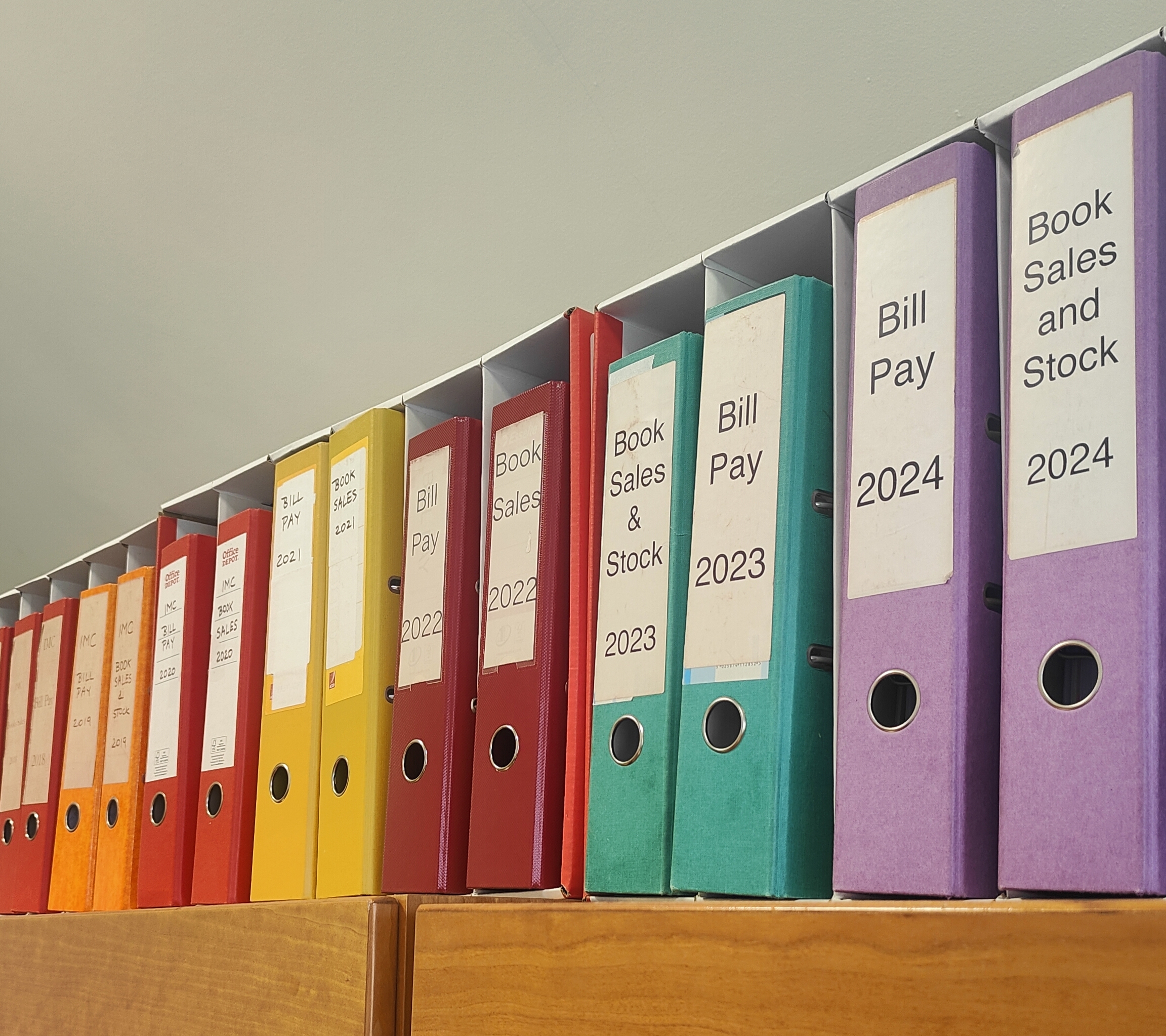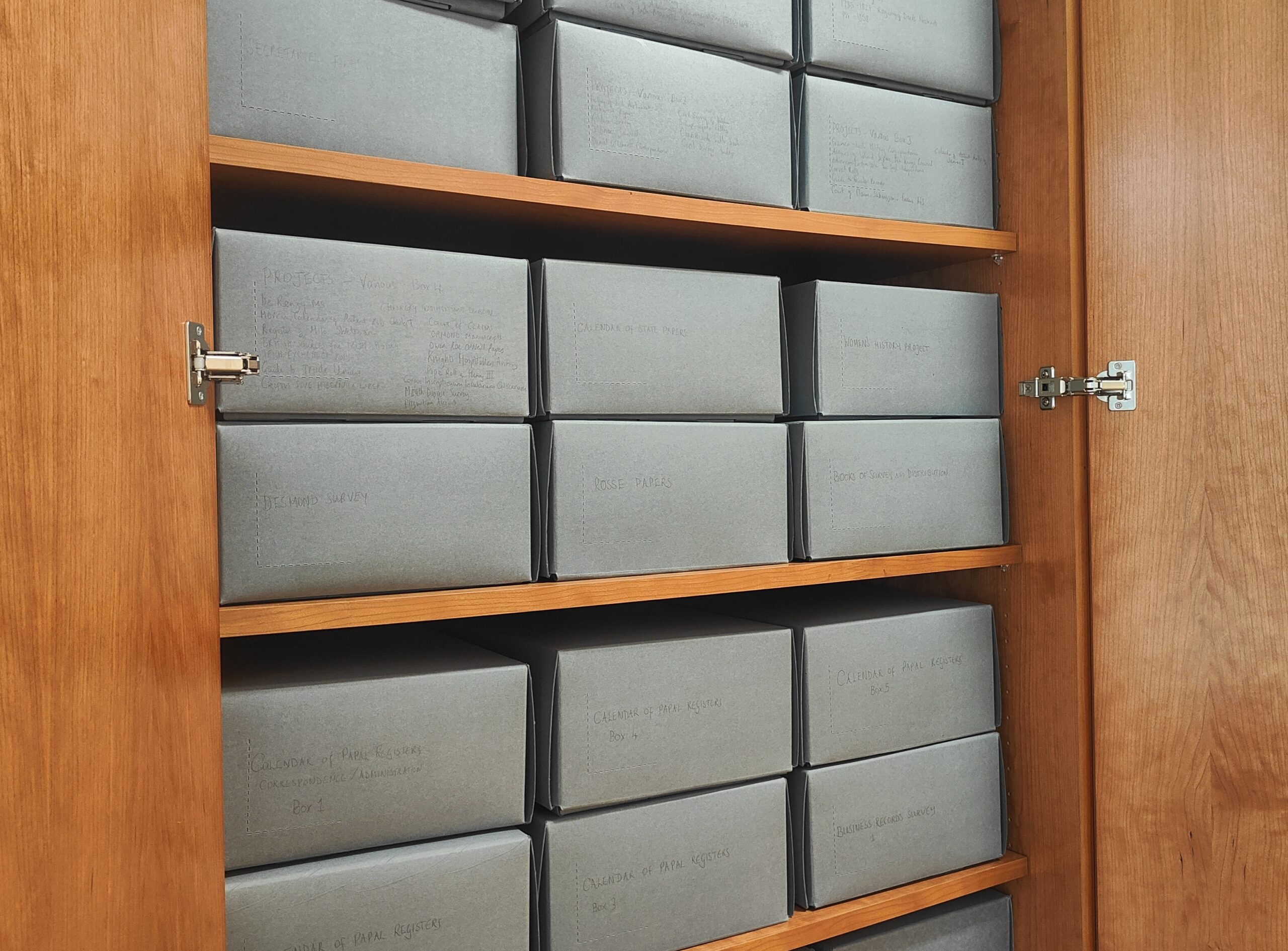Why should you keep old records?
Records tell stories about people, places, an institution or particular moments in time. They are important in piecing together the way life was lived and understanding how things worked in the past. They are of interest in themselves but also for historians to study in detail events, people, processes, politics and economics from our recent and not so recent past. These records help us to answer big questions about how life has changed over decades and centuries. Records can be diaries, letters, photographs, paintings, school roll books, business ledgers, drawings and plans, birth certificates, registers, bills of sale, tickets, newspapers, court records, hospital records, the list is endless.
If everything was thrown away or destroyed the link with the people and places that had gone before would be broken and our ability to piece together our past would be gone.
In Ireland we love history and history is based on the availability of records which have been kept and preserved in good condition.

Tell us about your old records
The Irish Manuscripts Commission would like to survey the quantity and range of records held by various bodies and organisations in order to provide advice tailored to the best way to preserve those particular records for posterity.
There are 9 questions in the survey and it should take no more than 10 minutes in total.
You can take the survey here. The information that precedes the survey questions outlines how the information given in the survey will be stored and processed.
GDPR and older records
In a modern context, personal data should only be collected for specified, explicit, and legitimate purposes which are clearly explained in advance of the data collection.
In relation to old records containing personal data, it is important to bear in mind that GDPR only covers data relating to living persons. If your records relate to deceased persons, GDPR does not apply.
Where your records relate to living persons, GDPR does not prevent the processing of personal data for archiving purposes in the public interest, or for historical research purposes.

Preserving your records
In general, paper preservation requires proper storage and safe handling practices. Your family documents will last longer if they are stored in a stable environment, similar to that which we find comfortable for ourselves: 15–20ºC (60–70ºF); 40–50% relative humidity (RH); with clean air and good circulation. High heat and moisture accelerate the chemical processes that result in the paper becoming brittle and discoloured. Damp environments may also result in mould growth and/or be conducive to pests that might use the documents for food or nesting material. Therefore, the central part of your home provides a safer storage environment than a hot attic or damp basement.
Light is also damaging to paper, especially light that contains high proportions of ultra violet, i.e., fluorescent and natural day light. The effects of light exposure are cumulative and irreversible; they promote chemical degradation in the paper and fade inks. It is not recommended to permanently display valuable documents for this reason.
Digital copies of photographs work well as surrogates but do not replace the original which should still be cared for as described above.
Family papers should be stored in appropriate sized enclosures, such as a folder, box, portfolio, etc., that will provide physical protection as well as protection from light and dust. The enclosure itself should be made of stable permanent quality materials that will not contribute to the document’s deterioration.
Preserving family records
Preserving records for clubs and societies
Information to follow.
Preserving legal records
Information to follow.
List of Local Authority Archives
If you have a body of records that you would like to donate to an archive for posterity, you should contact an appropriate repository that collects similar kinds of records. For example, a traditional music archive for musical scores or folk tunes, a film archive for cine footage or other audio-visual material or indeed your local county archive may be the perfect location for your records/collection.
If you decide to donate your personal records to a national or regional archive, the one you choose may depend on the material you are donating. You should check out your chosen archives’ collecting policy in the first instance. For example, some archives place an emphasis on unique personal writing and collections in contrast to printed/published material which is usually available in other libraries and archives. They might also prefer to have unedited material written at the time, and not re-written later, for example, diaries, personal letters, scrap books, photo albums etc. It is advisable to contact the archive in advance to discuss the suitability of your material and the process of donating.
Typically family records are of little or no financial value but the information that can be extracted from them by historians or students of all branches of history is of massive historical value and can add hugely to our understanding of an event, a person, a place or a given moment in time.
List of local authority and other record-holding bodies North and South of Ireland is here.
FAQ
What is personal data?
Personal data means any information about a living person, where that person either is identified or could be identified. It can include photographs as well as written documents.
Does GDPR cover persons who are deceased?
No, GDPR only relates to data about living persons.
What about sensitive personal data?
Certain types of sensitive personal data are subject to additional protection under the GDPR. These are:
- Personal data revealing racial or ethnic origin.
- Political opinions.
- Religious or philosophical beliefs.
- Trade union membership.
- Genetic data and biometric data processed for the purpose of uniquely identifying a natural person.
- Data concerning health.
- Data concerning a natural person’s sex life or sexual orientation.
Processing of these special categories of data can only be done in certain situations, including:
- Where an organisation does so in the course of its legitimate activities, with appropriate safeguards.
- Where processing is necessary for archiving purposes in the public interest, for historical research purposes or for statistical purposes.
What is Data Protection Law?
Data protection law governs situations where personal data is ‘processed’. GDPR (General Data Protection Regulations) is part of data protection law.
What are data protection rights?
Every individual is entitled to have their personal information protected, used in a fair and legal way, and made available to them when they ask for a copy.
What does ‘processing’ personal data mean?
Processing means using personal data in any way, including; collecting, storing, retrieving, consulting, disclosing or sharing with someone else, erasing, or destroying personal data. GDPR does not include the processing of data for purely personal purposes.
Does GDPR mean I have to destroy old records?
No. If the records relate to persons who are deceased, GDPR does not apply. If the records relate to living persons, you can take some basic steps to ensure you are GDPR compliant.
What are my obligations if I hold personal data about living persons?
In order to process personal data you must have a lawful basis to do so. The lawful grounds are:
- The consent of the individual;
- Performance of a contract;
- Compliance with a legal obligation;
- Necessary to protect the vital interests of a person;
- Necessary for the performance of a task carried out in the public interest; or
- In the legitimate interests of company/organisation (except where those interests are overridden by the interests or rights and freedoms of the data subject).
Where can I find out more about my rights and responsibilities?
Check out the website of the Data Protection Commissioner, www.dataprotection.ie/
